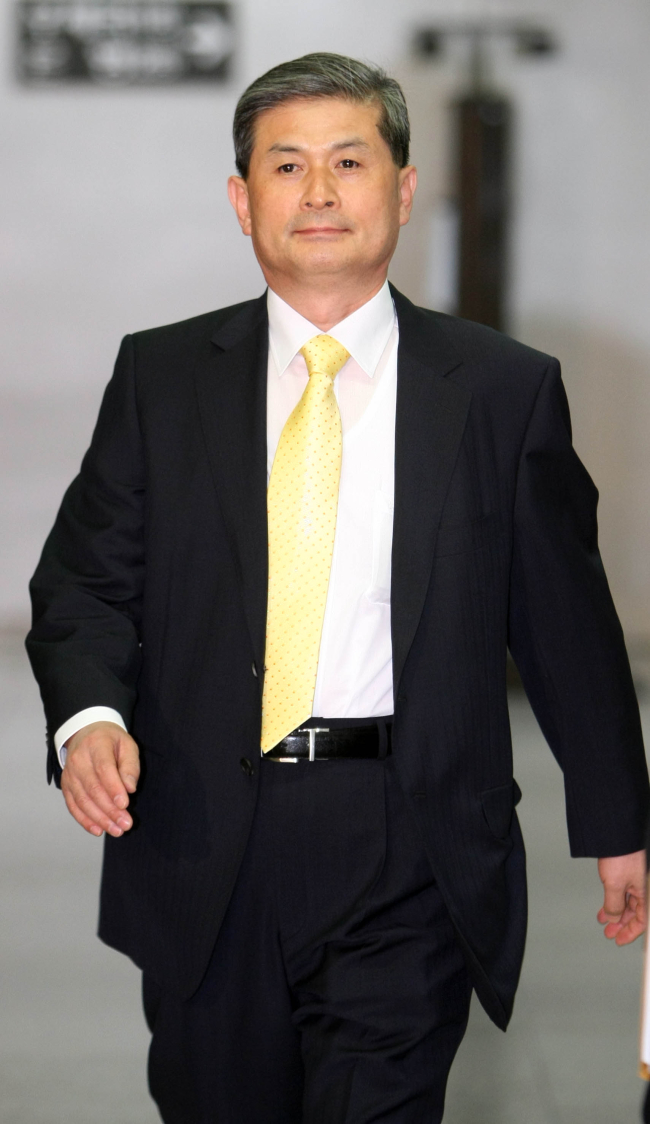 |
Hwang Woo-suk |
South Korea’s top court on Thursday upheld a lower court’s suspended jail sentence for stem-cell expert Hwang Woo-suk for unlawfully taking support funds and embezzling state research funds.
Hwang was found guilty of misappropriating nearly 784 million won ($735,000) in funds provided by the government and local companies using fabricated stem-cell research published in the journal Science.
The Supreme Court sentenced the disgraced scientist to one year and six months in prison with a two-year stay of execution. Hwang was acquitted of fraud charges.
Ending the prolonged eight-year legal fight to retrieve his fame, Hwang’s lawyers expressed regret over the court’s decision.
“We’re typically regretful on the court’s guilty verdict on charges involving embezzlement and violation of bioethics. The research funds were used for the welfare of other researchers,” Hwang’s lawyer Lee Bong-koo of the law firm Jung&Sohn told a local newspaper.
In a separate ruling Thursday, the top court overturned a lower court’s ruling and ruled against the scientist in a lawsuit he filed against Seoul National University to cancel his expulsion. The court returned the case to an appellate court for retrial.
“We will wait to see what the counterpart (Hwang) brings in appeals court,” an official from SNU’s public relations department said, declining to be named.
Allegations against Hwang were raised in 2006, when the scientist was indicted for fabricating stem cell research papers and embezzling a research subsidy provided by the state-run National Agricultural Cooperative Federation and SK Group.
Court records show that he took the funds using his papers published in the journal Science in 2004 and 2005, which were later retracted. The state-run university forced Hwang to leave his post after it was discovered he had faked some of his research results.
A Seoul district court partially acknowledged allegations against Hwang and sentenced him to two years in prison with a three-year stay of execution.
An appeals court later reduced his sentence to one year and six months behind bars with a two-year stay of execution, citing lack of evidence.
Hwang, who is credited for being the first to clone a dog, announced plans to clone a mammoth in 2012.
On Feb. 11, the U.S. Patent and Trademark Office made public that Hwang was granted patents for human embryonic stem cells and related technology.
By Suk Gee-hyun (
monicasuk@heraldcorp.com)






![[Herald Interview] 'Trump will use tariffs as first line of defense for American manufacturing'](http://res.heraldm.com/phpwas/restmb_idxmake.php?idx=644&simg=/content/image/2024/11/26/20241126050017_0.jpg)
![[Exclusive] Hyundai Mobis eyes closer ties with BYD](http://res.heraldm.com/phpwas/restmb_idxmake.php?idx=644&simg=/content/image/2024/11/25/20241125050044_0.jpg)
